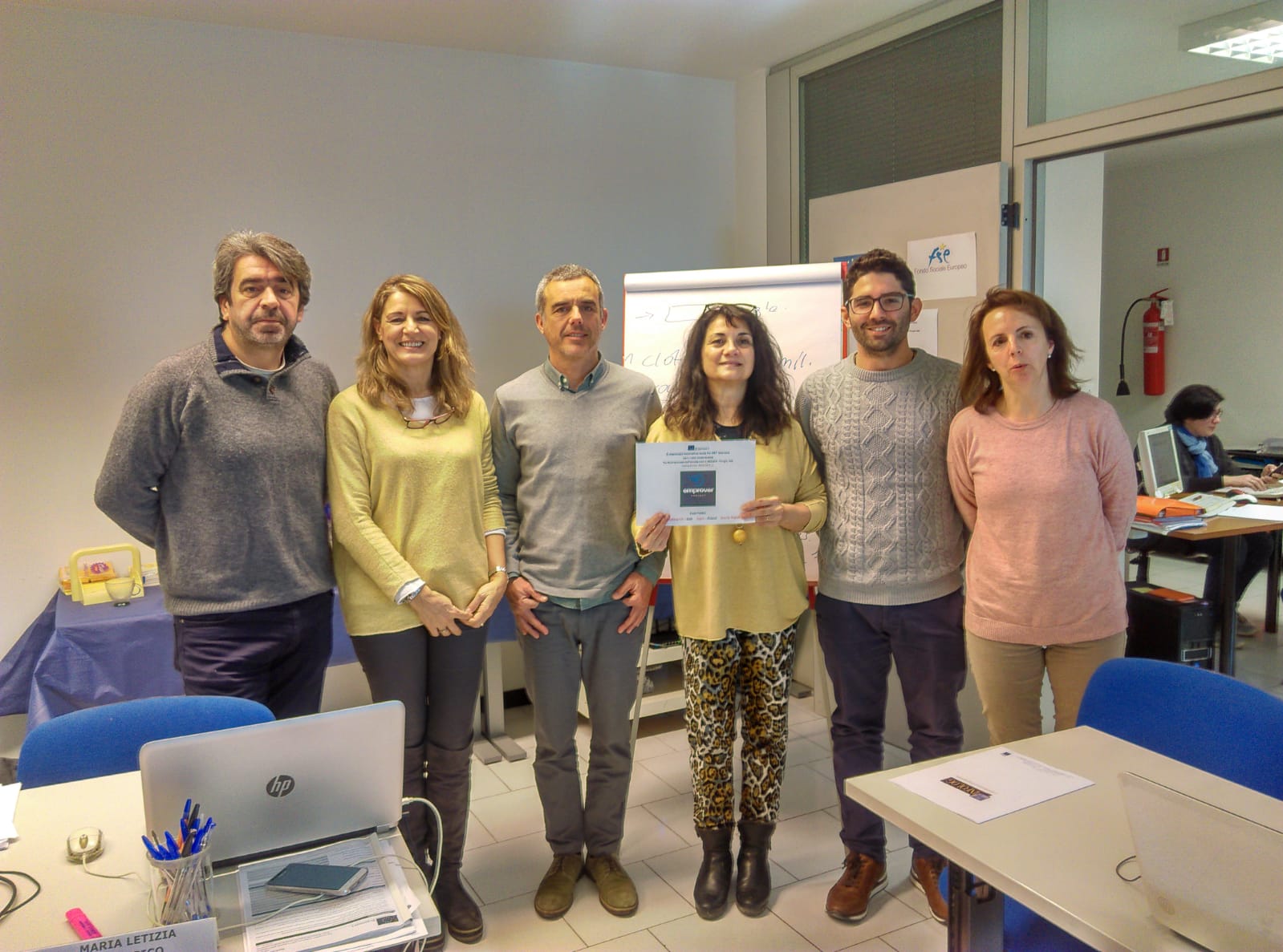Internacionalización de la empresa, Innovación y formación a distancia//Internationalization of the enterprise, innovation and e-learning
La adopción del Small Business Act for Europe en el 2008 ha marcado el reconocimiento de la importancia de las Pymes en el escenario europeo, en el cual las pequeñas y medianas empresas representan la mayoría de las empresas presentes en cada País miembro .
Desde la crisis económica del 2008 la supervivencia de las pymes está siempre más conectada al proceso de internacionalización, es decir, a la posibilidad para las Pymes de exportar los propios bienes o servicios en un mercado extranjero.
El enlace entre este proceso y las características propias de cada Pyme, en particular su estructura flexible, deriva de la posibilidad de explotar la flexibilidad para renovarse rápidamente y penetrar en nuevos mercados sin preocuparse de las fronteras nacionales.
La innovación es, sin embargo, muy difícil si hay una falta de las competencias necesarias para la internacionalización de la Pyme, por lo tanto, el tema de la formación deviene un aspecto fundamental para la misma existencia de las pymes con consecuencias tanto en el mercado nacional como en el europeo.
La formación continua se vuelve, por lo tanto, a una herramienta útil contra las dificultades de las empresas durante el periodo de crisis económica y también para resolver los problemas del mercado laboral ayudando el encuentro entre la pregunta y la oferta de trabajo.
En las conclusiones adoptadas por el Consejo Europeo del 12 Mayo 2009 sobre un marco estratégico para la cooperación europea en el sector de la educación y formación “ET 2020” han estado definidos unos objetivos estratégicos de conseguir hacia el 2020, los que son insertados como parte constituyente de la Estrategia Europea 2020.
Según la óptica del diseño europeo la formación continua no es solo la herramienta principal de desarrollo de la persona en su vida social y profesional, sobre todo ella es la base para una economía más competitiva, dinámica y sostenible.
El primer problema que las Pymes tienen que afrontar en tema de educación es la carencia de una fuerte relación entre la formación universitaria y las necesidades del mercado laboral, la formación continua representa el mejor modo para colmar esta falta y responder a las necesidades de la empresa.
De todas maneras, también en el proceso de formación continua hay diferentes obstáculos para la empresa que conciernen la falta de tiempo de dedicar a la formación en los horarios de trabajo, el costo necesario para sostener el desarrollo de los cursos por la empresa, así como las dificultades conectadas a una oferta formativa que es a menudo al servicio de las grandes empresas y no responde a las necesidades de las pequeñas tiendas.
Dar una solución a estos problemas es la causa principal del desarrollo de la formación a distancia y del aumento de las tiendas que quieren ofrecer unos servicios formativos para las empresas.
Si el futuro del modelo económico europeo es la Pyme y su propensión a la internacionalización y a la innovación, la formación a distancia deviene día tras día un aspecto importantísimo en el futuro estratégico europeo creando un sistema formativo dinámico y innovador, listo a sostener el crecimiento económico y sustentable para los país de la Unión Europea.
The adoption of the Small Business Act for Europe acknowledges in 2008 SMEs role in the European system in which they represent the largest part of the enterprise in every State member.
From the economic crisis in 2008 the SMEs survival is always more linked to internationalization process, that is, the possibility for them to export their goods or their services in another market.
The link between this process and the main SMEs features, in particular their flexible structure, comes from the possibility to exploit this flexibility to update themselves quickly and to penetrate in a new market without worrying about national borders.
However, the innovation is really difficult if there is a lack of necessary competences for the internationalization process, so the education becomes a principal topic of SMEs existence both in the national market and in European one.
The Lifelong Learning system proves to be a useful tool against the difficulties of the enterprises under the economic crisis and also a tool to solve the problems of the job market helping the meet between the demand and the offer of work.
In the conclusions adopted by the European Council on 12 May 2009 on a Strategic frame for European cooperation in the education and vocational training sector “ET 2020” some strategic purposes have been defined and included as part of the European Strategy 2020.
According to the European institutional approach, lifelong learning is not only the principal way to develop every person in his social and professional life, but above all it is the basis of a more competitive, dynamic and sustainable economy.
The principal problem which the SMEs have to overcome in the educational field is the lack of a strong relationship between the academic studies and job market needs, lifelong learning represents the best way to fill this gap and to satisfy the needs of the enterprises.
Anyway, also in the lifelong learning process, there are different obstacles for the enterprises. These obstacles concern the lack time to dedicate in training during work time, the cost for the development of formative courses such as the difficulties linked to a formative offer which does often useful for the big societies but it not satisfy needs of the little ones.
Giving a solution to these problems is the principal cause of the development of the e-learning sector as well as the societies which offer formative services for the enterprises.
If the future of the European economic model is based on SMEs and their inclination to the internationalization and innovation, e-learning becomes day by day a fundamental aspect in the European strategic future, making a dynamic and innovating educational system, ready to support economic and sustainable growth of the European States Members.
Adr.sergio
Latest posts by Adr.sergio (see all)
- Internacionalización de la empresa, Innovación y formación a distancia//Internationalization of the enterprise, innovation and e-learning - 19/05/2015
- Barcelona, 9-12 de junio de 2015: la importancia del sector e-learning y las perspectivas sobre el futuro // Barcelona, 9th-12th June 2015: the importance of the e-learning sector and prospects for the future - 26/03/2015





